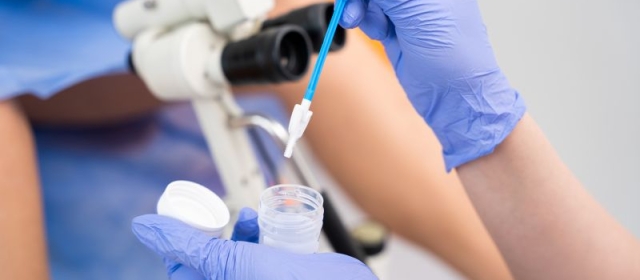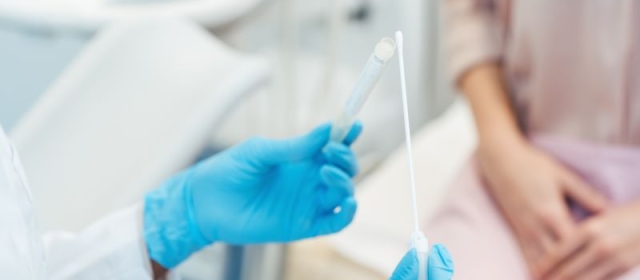
All Sexual Health Topics
Upcoming Events

- Sexual Health Topics: Mental Health & Psychology, Sexual Orientation & LGBTQIA+ Health
Gender dysphoria, according to the Diagnostic and Statistical Manual of Mental Disorders, is defined as a “marked incongruence between a person's experienced or expressed gender and the one they were assigned at birth.” While not every transgender or gender diverse individual may experience gender dysphoria, those who do may have difficulties in public spaces, such as work or school, due to social norms and behavioral expectations associated with their assigned sex. Overarching effects of gender dysphoria can include anxiety, depression, eating disorders, and relationship problems.

- Sexual Health Topics: Men’s Sexual Health, Women’s Sexual Health, Mental Health & Psychology
The World Health Organization defines sexual health as a state of whole body and mind well-being regarding sexuality and sexual relationships, which should be approached with positivity and respect as well as have the possibility of more pleasurable and safe sexual experiences free of coercion, discrimination, and violence. This entails:

- Sexual Health Topics: Men’s Sexual Health, Women’s Sexual Health, Sexual Health Management & Treatments
Sexual health plays a crucial role in overall well-being, and researchers continue to explore new treatments to help individuals struggling with sexual dysfunctions. Exciting advancements in medical technology offer promising solutions, including low-intensity shockwave therapy (LiSWT), stem cell therapy, and platelet-rich plasma (PRP) therapy. While these treatments show potential, they also have limitations that need to be addressed through further research.

- Sexual Health Topics: Men’s Sexual Health, Women’s Sexual Health
Glucagon-like peptide-1 (GLP-1) agonists are widely known for their role in managing type 2 diabetes and promoting weight loss. However, recent research suggests these medications may have an effect on sexual desire. While losing weight can improve body image and self-confidence, leading to a more satisfying sex life, some researchers question whether GLP-1 agonists may reduce sexual interest due to their effects on brain chemistry, particularly serotonin pathways. A few studies suggest a possible link, but the overall picture is still unclear.

- Sexual Health Topics: Men’s Sexual Health, Women’s Sexual Health, Sexually Transmitted Infections/Diseases (STIs/STDs)
If you’ve been treated for a sexually transmitted infection (STI), you have taken an important step in protecting your health and preventing potential future complications. Proper treatment can eliminate the infection, reduce symptoms, and lower the risk of transmission to others. At this point, you might assume you’re in the clear. However, it is possible to get the same STI again, even after completing treatment. Understanding how reinfection occurs and how to protect yourself can help you stay healthy.

- Sexual Health Topics: Women’s Sexual Health, Sexual Health Management & Treatments
Vestibulodynia is a chronic pain condition affecting the vulvar vestibule, the sensitive area between the labia minora and the hymen. This condition is often associated with pain during sexual activity, tampon use, or even daily activities such as sitting or wearing tight clothing. It is a localized form of vulvodynia and affects up to one in eight women during their lifetime. While the exact cause of vestibulodynia is unclear, potential factors include hormonal changes, nerve hypersensitivity, inflammation, and muscle tension. Managing this condition requires a tailored, multidisciplinary approach that combines medical, behavioral, and alternative treatments.

- Sexual Health Topics: Men’s Sexual Health, Sexual Health Management & Treatments
Erectile dysfunction (ED) is a common condition that affects many men, impacting their quality of life and relationships. While traditional treatments such as oral medications, vacuum erection devices (VEDs), and lifestyle changes are widely used, new therapies like platelet-rich plasma (PRP) injections are gaining attention. Here is a breakdown of the basics of using PRP therapy for ED, using insights from recent studies to help individuals better understand this potential emerging treatment option.

- Sexual Health Topics: Men’s Sexual Health, Women’s Sexual Health, Sexual Health Management & Treatments
Pelvic floor exercises, often called Kegel exercises, can support the muscles in the pelvic region, which assist with vital functions like bladder control, bowel health, and sexual activity. While these exercises are well-known for their role in managing incontinence, they can also have benefits for sexual health. Here’s an overview of how pelvic floor exercises can enhance your well-being.

- Sexual Health Topics: Men’s Sexual Health
Sperm quality is an essential factor in male fertility, and lifestyle choices can significantly influence it. Sperm quality is commonly evaluated based on parameters like count, motility (movement), morphology (shape), and DNA integrity. Factors such as diet, exercise, stress, sleep, and exposure to toxins play vital roles in determining the health of sperm.

- Sexual Health Topics: Men’s Sexual Health, Women’s Sexual Health, Sexually Transmitted Infections/Diseases (STIs/STDs)
Sexually transmitted infections (STIs) are common health concerns that can affect anyone who is sexually active. Understanding the signs and symptoms of an STI and knowing when to seek medical attention can help protect your health and that of your partner(s).

- Sexual Health Topics: Men’s Sexual Health, Women’s Sexual Health, Sexual Orientation & LGBTQIA+ Health
Sexual dysfunctions can affect anyone, including individuals within the LGBTQIA+ community. However, these dysfunctions often present unique challenges for LGBTQIA+ individuals due to a combination of societal stigma, medical discrimination, and limited research that overlooks their specific needs. Understanding these sexual dysfunctions and addressing them inclusively can lead to better sexual health outcomes and improved quality of life for these individuals. This article explores common sexual dysfunctions affecting LGBTQIA+ individuals and the unique considerations involved.


